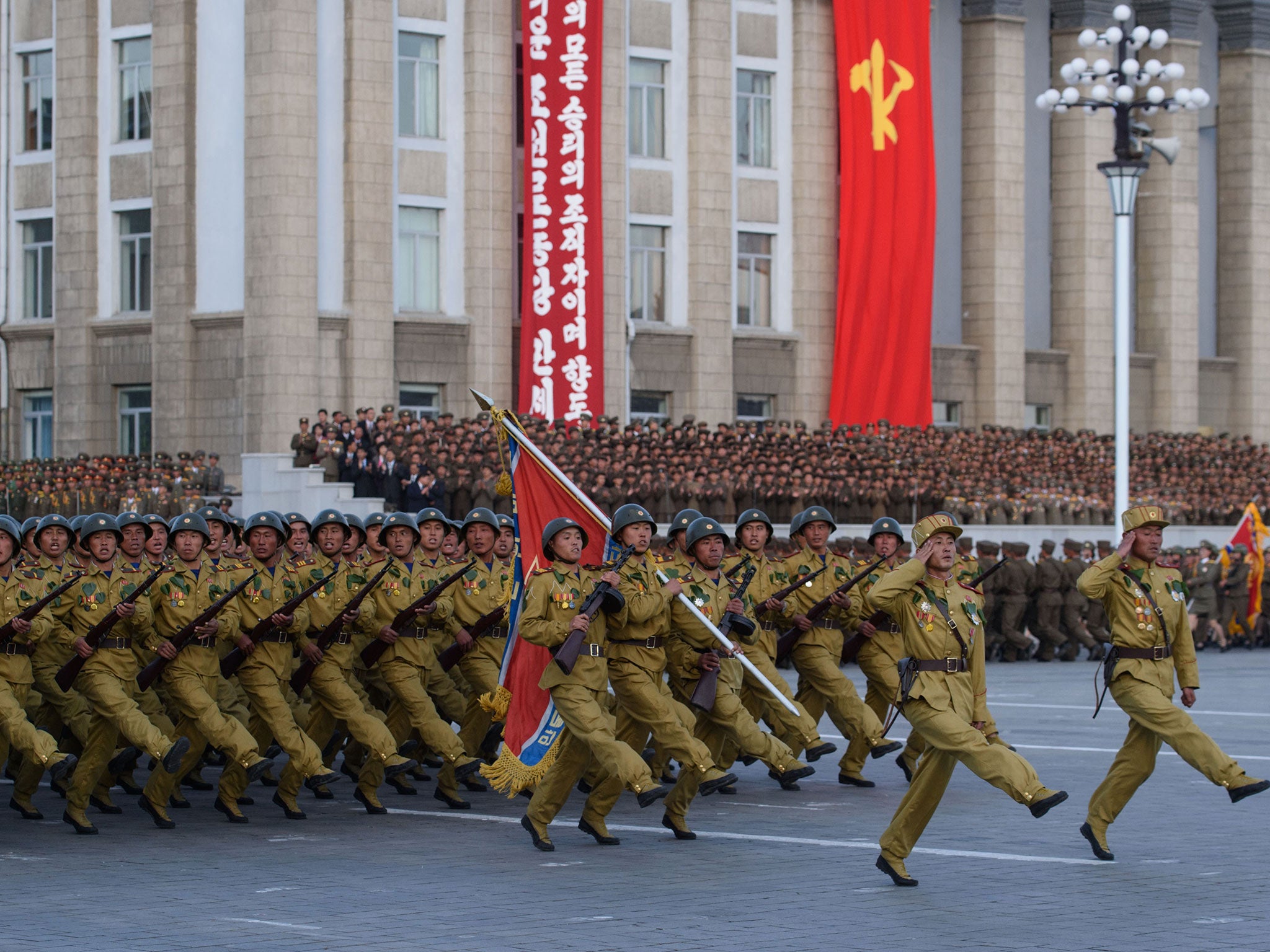North Korea soldiers 'armed with nuclear backpacks' as tensions rise over US-South Korean military exercises
Report comes after series of weapons tests by Kim Jong-un's forces

Your support helps us to tell the story
From reproductive rights to climate change to Big Tech, The Independent is on the ground when the story is developing. Whether it's investigating the financials of Elon Musk's pro-Trump PAC or producing our latest documentary, 'The A Word', which shines a light on the American women fighting for reproductive rights, we know how important it is to parse out the facts from the messaging.
At such a critical moment in US history, we need reporters on the ground. Your donation allows us to keep sending journalists to speak to both sides of the story.
The Independent is trusted by Americans across the entire political spectrum. And unlike many other quality news outlets, we choose not to lock Americans out of our reporting and analysis with paywalls. We believe quality journalism should be available to everyone, paid for by those who can afford it.
Your support makes all the difference.Elite North Korean soldiers are being armed with “nuclear backpacks”, a source has claimed as tensions increase over the authoritarian state’s attempts at military escalation.
An anonymous source told Radio Free Asia special units have been formed since March to carry the weapons and had been taking part in simulated training exercises with dummy bombs.
“Outstanding soldiers were selected from each reconnaissance platoon and light infantry brigade to form the nuclear backpack unit the size of a battalion,” the source from North Hamgyong province was quoted as saying.
The supposed weapons were said to weigh between 10 and 30 kilograms and be able to “spray radioactive material”, possibly uranium, on the enemy.
It was impossible to verify the account given to Radio Free Asia, which is funded by the US government.
North Korean propaganda showed soldiers wearing rucksacks bearing a yellow and black radiation symbol during a parade celebrating the 70th anniversary of the national Workers' Party in October, while similar backpacks were seen at a procession in 2013.
The report came after Kim Jong-un’s administration reportedly executed a vice premier and banished two other top officials to rural areas for dreaded “re-education”.
South Korean officials said Yong-jin, a cabinet minister for education affairs, had been killed, possibly by a firing squad in July for unspecified anti-revolutionary and factional acts.
Reports said said Kim first faced an investigation because of the way he was seated during a meeting attended by the Supreme Leader.
Kim Yong-chol, a top ruling Workers' Party official in charge of anti-Seoul spy operations, and Choe Hwi, a senior party official dealing with propaganda affairs, had been banished to undertake “revolutionary re-education” programmes.
The reported purges came as North Korea continues to intensify its propaganda over joint military exercises being conducted by more than 75,000 American and South Korean troops in “Ulchi Freedom Guardian”.
While the North is known to have a small stockpile of nuclear warheads, experts are divided about its ability to mount them on a working missile delivery system.
In a statement earlier this month by US and South Korean forces described the exercises as “non-provocative in nature” and designed to enhance “readiness, protect the region and maintain stability on the Korean peninsula”.
But the drills provoked a stream of threats from Pyongyang, which said it would turn Seoul and Washington into a “heap of ashes” with a pre-emptive strike.
An editorial published by the state-run Korean Central News Agency on Tuesday accused Barack Obama’s administration of presiding over a “reckless arms build-up” that “cannot but spark off a fresh nuclear arms race among regional countries”.
North Korea has made considerable progress on weapons technology this year, including testing a submarine-launched missile for the first time, but it is unclear whether its nuclear material has been developed into a warhead able to be mounted on a missile.
It conducted its fourth nuclear explosion in January and followed it up with a series of missile tests, in spite of severe United Nations sanctions.
Additional reporting by AP
Join our commenting forum
Join thought-provoking conversations, follow other Independent readers and see their replies
Comments